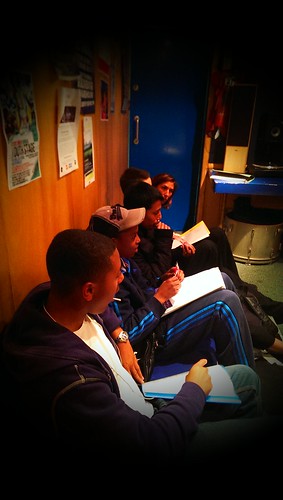Navigating the ‘culture paradox’: How live events can bridge the internal gap
The Drum #TheDrum

As leaders from The Drum Network ponder the future of agencyland, Freeman’s Jason Megson makes a case for live events and a secret weapon in the fight for company culture.
As we stand on the edge of 2024, the resounding echoes of the ‘back to office’ movement reverberate through corporate corridors and newspaper headlines. This shift isn’t merely about the physical return to the workspace; it’s a profound exploration of corporate culture and its far-reaching implications. In an era where internal dynamics significantly shape business performance, marketers are realizing the pivotal role that the company behind the brand has in creating and communicating authenticity that today’s street-smart consumers expect.
In the post-pandemic landscape, the aroma of corporate culture permeates beyond the tangible confines of office walls. A united workforce, regardless of physical location, propels innovation and progress.
That’s why the external marketing face of a company must genuinely mirror its internal culture to resonate with consumers. Long gone are the days of anonymous chief executives; they are now newsworthy brand ambassadors who help create and grow the culture of their businesses.
The culture wars at work
This truth, however, isn’t without its challenges. A(nother) culture war is unfolding, with the politicization of flexible and remote working dominating government and media agendas.
The source of this conflict lies in the ‘culture paradox’: employees, particularly the gen Z demographic, prioritize hybrid, flexible working, and actively seek out an attractive company culture. Yet, as we approach 2024, the boardroom and management are still grappling with how to support that culture in a hybrid and remote environment. Their prevailing belief seems to be in a return to traditional in-office working, but to control and dictate culture creates palpable tension.
The anthropologist and evolutionary psychologist Professor Robin Dunbar characterizes these modern organizations as villages. They operate, for Dunbar, most successfully when finely tuned social dynamics support the financial imperatives that are most often the key performance metrics in commercial enterprises.
Dunbar’s research concludes that culture will only thrive when deep bonds are created and trust is built in a meaningful and manageable manner – within the constraints of the practical numbers of connections that humans can accommodate individually. Marry this with our intrinsic yearning for community and our preferences towards having similarities as part of a shared identity, and you have the key elements that contribute to a successful corporate culture.
Living culture
Brand experience and live events have emerged as the perfect tool to bridge the cultural gap that organizations are grappling with. Every team meeting and company event is not merely a gathering; it’s a golden opportunity to reinforce corporate values, build a cohesive culture, both horizontally and vertically within the organization. Purposeful in-person experiences play a significant role in catalyzing this cultural shift.
Industry leaders such as Salesforce and Burger King now use the transformative power of well-executed brand experiences for internal audiences. Their stories serve as blueprints for other organizations looking to navigate the culture paradox and unlock the business value within their own cultural DNA.
For example, Salesforce, a tech trailblazer, has seamlessly integrated its culture into every facet of its brand experience. From virtual town halls that connect global teams to interactive workshops fostering collaboration to its flagship annual Dreamforce event, Salesforce demonstrates that culture isn’t confined to physical proximity. This approach highlights the need for flexibility and adaptability in cultural strategies, aligning seamlessly with the desires of the modern workforce.
Fast food giant (and Freeman client) Burger King, meanwhile, has redefined the notion of internal events. From quirky virtual celebrations of team milestones to annual in-person convention series, gathering restaurant employees, franchisees and supply chain partners from across the globe, Burger King has carved a unique cultural identity. Spanning continents and cultures, events can be a powerful tool for fostering a shared sense of purpose and belonging.
As businesses strive to align external messaging with internal culture, the culture paradox necessitates a strategic rethink. With 2024 fast approaching, marketers must embrace the symbiotic relationship between internal culture and external perception. By creating purposeful internal events and drawing inspiration from industry leaders, organizations can not only bridge the cultural gap but also unlock innovation, increase business value, and drive consumer preference. The key to success lies in transforming every in-person event into a cultural milestone, celebrating the resilience, adaptability, and unity of the modern workforce.
Suggested newsletters for you
Daily Briefing Daily
Catch up on the most important stories of the day, curated by our editorial team.
Ads of the Week Wednesday
See the best ads of the last week – all in one place.
Media Agency Briefing Thursday
Our media editor explores the biggest media buys and the trends rocking the sector.